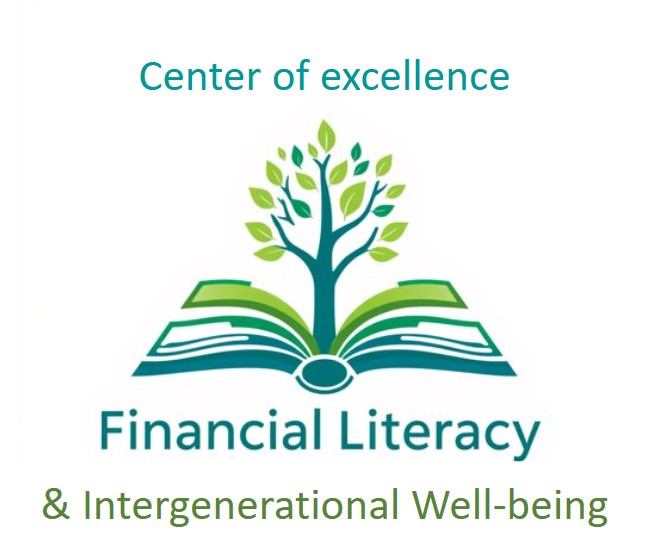A Multi-Product, Single Period Sustainable Closed-Loop Supply Chain Network Design: A Scenario-Based Stochastic Optimization Approach
 Abstract Views:
165 times
Abstract Views:
165 times
 PDF Downloads:
46 times
PDF Downloads:
46 times
Abstract
Purpose: This study examined the optimization of a stochastic sustainable closed-loop supply chain network for multi-product, single-period operations in a beverage company in Benin City, Nigeria, with a focus on five beverage products (Coke, Fanta, Sprite, Big Cola, and Eva).
Method: The research employed a scenario-based stochastic mixed integer linear programming (SMILP) modeling approach to address demand uncertainties while minimizing costs and environmental impact. The network integrates forward and reverse logistics, including manufacturing, warehousing, retailing, disposal, recycling, recovery, redistribution, and remanufacturing stages.
Result: Key findings reveal optimal product allocation scenarios for each product, demonstrating significant cost savings through remanufacturing and recycling. For instance, 94-100% of PET bottles were recovered and reused, reducing reliance on virgin materials and lowering production costs. The total environmental impact was quantified at 481,360 kg of CO₂, with variations across products due to differences in recycling efficiency and reverse logistics costs. The total network cost was optimized to N144,315,000, balancing economic and sustainability objectives. The study highlights the viability of closed-loop supply chains in emerging markets, emphasizing the role of stochastic optimization in managing demand variability. Practical implications include strategies for enhancing resource efficiency, reducing waste, and improving circular economy practices in the beverage industry.
Downloads
References
Abbasi, S., Mousavi, S. S., Farbod, E., Sorkhi, M. Y., & Parvin, M. (2024). Hybrid data mining and data-driven algorithms for a green logistics transportation network in the post-COVID era: A case study in the USA. Systems and Soft Computing, 5, 200156. https://doi.org/10.1016/j.sasc.2024.200156
Abbasi, S., Rokhva, S., Farahmand, K., Ghasemi, P., & Shahab, E. (2025). Designing sustainable closed-loop supply chain network based on a circular economy approach: Under uncertainty during the post-COVID era. Circular Economy and Sustainability. https://doi.org/10.1007/s43615-025-00509-3
Brandenburg, M., Govindan, K., Sarkis, J., & Seuring, S. (2014). Quantitative models for sustainable supply chain management: Developments and directions. European Journal of Operational Research, 233(2), 299–312. https://doi.org /10.1016/j.ejor.2014.03.031
Devika, K., Jafarian, A., & Nourbakhsh, V. (2014). Designing a sustainable closed-loop supply chain network based on triple bottom line approach: A comparison of metaheuristics hybridization techniques. European Journal of Operational Research, 235(3), 594–615. https://doi.org/10.1016/j.ejor.2013.12.032
Fattahi, M., & Govindan, K. (2018). A multi-stage stochastic program for the sustainable design of biofuel supply chain networks under biomass supply uncertainty and disruption risk: A real-life case study. Transportation Research Part E: Logistics and Transportation Review, 118, 534–567.
https://doi.org/10.1016/j.tre.2018.08.001
Goli, A. (2024). Efficient optimization of robust project scheduling for industry 4.0: A hybrid approach based on machine learning and meta-heuristic algorithms. International Journal of Production Economics, 278, 109427. https://doi.org/10.1016/j.ijpe.2024.109427
Goli, A., Ala, A., & Mirjalili, S. (2023). A robust possibilistic programming framework for designing an organ transplant supply chain under uncertainty. Annals of Operations Research, 328(1), 493–530. https://doi.org/10.1007/s10479-022-04829-7
Goli, A., & Tirkolaee, E. B. (2023). Designing a portfolio-based closed-loop supply chain network for dairy products with a financial approach: Accelerated Benders decomposition algorithm. Computers & Operations Research, 155, 106244. https://doi.org/10.1016/j.cor.2023.106244
Guide, V. D. R., & Van Wassenhove, L. N. (2009). OR Forum—The evolution of closed-loop supply chain research. Operations Research, 57(1), 10–18. https://doi.org/10.1287/opre.1080.0625
Ivanov, D., & Keskin, B. B. (2023). Post-pandemic adaptation and development of supply chain viability theory. Omega, 116, 102806. https://doi.org/10.1016/j.omega.2022.102806
Lambert, D. M. (2006). Supply chain management: Processes, partnerships, performance. Supply Chain Management Institute.
Lee, D.-H., & Dong, M. (2008). A heuristic approach to logistics network design for end-of-lease computer products recovery. Transportation Research Part E: Logistics and Transportation Review, 44(3), 455–474. https://doi.org/10.1016/j.tre.2006.11.003
Maggioni, F., Potra, F. A., & Bertocchi, M. (2017). A scenario-based framework for supply planning under uncertainty: Stochastic programming versus robust optimization approaches. Computational Management Science, 14(1), 5–44. https://doi.org/10.1007/s10287-016-0281-7
Mardan, E., Govindan, K., Mina, H., & Gholami-Zanjani, S. M. (2019). An accelerated benders decomposition algorithm for a bi-objective green closed loop supply chain network design problem. Journal of Cleaner Production, 235, 1499–1514. https://doi.org/10.1016/j.jclepro.2019.06.187
Mentzer, J. T. (2001). Defining supply chain management. Journal of Business Logistics, 22(2), 1–25.
Moheb-Alizadeh, H., & Handfield, R. (2018). An integrated chance-constrained stochastic model for efficient and sustainable supplier selection and order allocation. International Journal of Production Research, 56(21), 6890–6916. https://doi.org/10.1080/00207543.2017.1308379
Moheb-Alizadeh, H., & Handfield, R. (2019). Sustainable supplier selection and order allocation: A novel multi-objective programming model with a hybrid solution approach. Computers & Industrial Engineering, 129, 192–209. https://doi.org/10.1016/j.cie.2019.01.011
Moheb-Alizadeh, H., Mahmoudi, M., & Bagheri, R. (2017). Supplier selection and order allocation using a stochastic multi-objective programming model and genetic algorithm. International Journal of Integrated Supply Management, 11(4), 291–315. https://doi.org/10.1504/IJISM.2017.089849
Moheb-Alizadeh, H., Rasouli, S. M., & Tavakkoli-Moghaddam, R. (2011). The use of multi-criteria data envelopment analysis (MCDEA) for location-allocation problems in a fuzzy environment. Expert Systems with Applications, 38(5), 5687–5695. https://doi.org/10.1016/j.eswa.2011.07.013
Pedram, A., Pedram, P., Yusoff, N. B., & Sorooshian, S. (2017). Development of closed-loop supply chain network in terms of corporate social responsibility. PLOS ONE, 12(4), e0174951. https://doi.org/10.1371/journal.pone.0174951
Pishvaee, M. S., Rabbani, M., & Torabi, S. A. (2011). A robust optimization approach to closed-loop supply chain network design under uncertainty. Applied Mathematical Modelling, 35(2), 637–649. https://doi.org/10.1016/j.apmt.2010.08.018
Pishvaee, M. S., Razmi, J., & Torabi, S. A. (2014). An accelerated Benders decomposition algorithm for sustainable supply chain network design under uncertainty: A case study of medical needle and syringe supply chain. Transportation Research Part E: Logistics and Transportation Review, 67, 14–38. https://doi.org/10.1016/j.tre.2014.02.005
Pishvaee, M. S., & Torabi, S. A. (2010). A possibilistic programming approach for closed-loop supply chain network design under uncertainty. Fuzzy Sets and Systems, 161(20), 2668–2683. https://doi.org/10.1016/j.fss.2010.04.010
Qiu, X., & Huang, G. Q. (2013). Supply hub in industrial park (SHIP): The value of freight consolidation. Computers & Industrial Engineering, 65(1), 16–27. https://doi.org/10.1016/j.cie.2012.05.017
Rafli, M. R., Makiah, Z., Claudia, M., Syahputra, M. D., Aisyah, L., & Faridah, R. (2025). Green process innovation and its impact on sustainability performance: The mediating role of green supply chain management. Journal of Entrepreneurship & Business, 6(2), 131–142. https://doi.org/10.24123/jeb.v6i2.7411
Ruszczyński, A., & Shapiro, A. (2009). Stochastic programming models. In A. Ruszczyński & A. Shapiro (Eds.), Lectures on stochastic programming: Modeling and theory (pp. 1–25). Society for Industrial and Applied Mathematics.
Seuring, S. (2013). A review of modeling approaches for sustainable supply chain management. Decision Support Systems, 54(4), 1513–1520. https://doi.org/10.1016/j.dss.2012.05.053
Seuring, S., & Müller, M. (2008). From a literature review to a conceptual framework for sustainable supply chain management. Journal of Cleaner Production, 16(15), 1699–1710. https://doi.org/10.1016/j.jclepro.2007.05.011
Shahin, A., Khalili, A., & Pourhamidi, M. (2017). Proposing a new approach for evaluating supply chain agility by data envelopment analysis with a case study in Pashmineh Kavir factory. International Journal of Services and Operations Management, 26(3), 277–293. https://doi.org/10.1504/ijsom.2017.085047
Sherafati, M., Bashiri, M., Tavakkoli-Moghaddam, R., & Pishvaee, M. S. (2019). Supply chain network design considering sustainable development paradigm: A case study in cable industry. Journal of Cleaner Production, 234, 366–380. https://doi.org/ 10.1016/j.jclepro.2019.117238
Soleimani, H., Govindan, K., Saghafi, H., & Jafari, H. (2017). Fuzzy multi-objective sustainable and green closed-loop supply chain network design. Computers & Industrial Engineering, 109, 191–203. https://doi.org/10.1016/j.cie.2017.08.021
Tang, C. S., & Zhou, S. (2012). Research advances in environmentally and socially sustainable operations. European Journal of Operational Research, 223(3), 585–594. https://doi.org/10.1016/j.ejor.2012.07.030
Tavana, M., Kian, H., Nasr, A. K., Govindan, K., & Mina, H. (2022). A comprehensive framework for sustainable closed-loop supply chain network design. Journal of Cleaner Production, 332, 129777. https://doi.org/10.1016/j.jclepro.2021.129777
Vahdani, B., Jolai, F., Tavakkoli-Moghaddam, R., & Mousavi, S. M. (2012). Two fuzzy possibilistic bi-objective zero-one programming models for outsourcing the equipment maintenance problem. Engineering Optimization, 44(7), 801–820. https://doi.org/10.1080/0305215X.2011.613465
Yakavenka, V., Mallidis, I., Vlachos, D., Iakovou, E., & Eleni, Z. (2019). Development of a multi-objective model for the design of sustainable supply chains: The case of perishable food products. Annals of Operations Research, 280(1), 273–299. https://doi.org/ 10.1007/S10479-019-03434-5
Zahiri, B., Zhuang, J., & Mohammadi, M. (2017). Toward an integrated sustainable-resilient supply chain: A pharmaceutical case study. Transportation Research Part E: Logistics and Transportation Review, 103, 109–142. https://doi.org/10.1016/j.tre.2017.04.009
Zailani, S., Jeyaraman, K., Vengadasan, G., & Premkumar, R. (2012). Sustainable supply chain management (SSCM) in Malaysia: A survey. International Journal of Production Economics, 140(1), 330–340. https://doi.org/10.1016/j.ijpe.2012.02.008
Zhang, G. Q., & Ma, L. (2009). Optimal acquisition policy with quantity discounts and uncertain demands. International Journal of Production Research, 47(9), 2409–2425. https://doi.org/ 10.1080/00207540701678944
Zhalechian, M., Tavakkoli-Moghaddam, R., Zahiri, B., & Mohammadi, M. (2016). Sustainable design of a closed-loop location-routing-inventory supply chain network under mixed uncertainty. Transportation Research Part E: Logistics and Transportation Review, 89, 182–214. https://doi.org/10.1016/j.tre.2016.02.011
Articles published in Journal of Entrepreneurship & Business are licensed under a Creative Commons Attribution 4.0 International (CC BY) license. You are free to copy, transform, or redistribute articles for any lawful purpose in any medium, provided you give appropriate credit to the original author(s) and the journal, link to the license, and indicate if changes were made.
Authors submitting to this journal agree to make their work freely available under the CC BY 4.0 license, ensuring broad dissemination and reuse. The full license details can be accessed at https://creativecommons.org/licenses/by/4.0/.
This ensures that they receive the maximum dissemination because there are no barriers to access. This license allows readers to disseminate and reuse the paper, but always requires them to grant the authors and the first publication full credit.
While JEB upholds ethical publishing standards, the responsibility for ensuring originality and compliance with copyright regulations lies with the authors. The journal is not liable for any legal claims related to the content of published articles.
For further inquiries, please contact the editorial team.

 DOI:
DOI:










